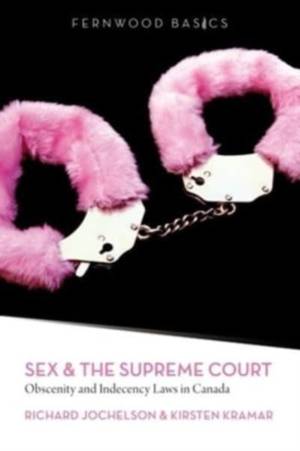
- Afhalen na 1 uur in een winkel met voorraad
- Gratis thuislevering in België vanaf € 30
- Ruim aanbod met 7 miljoen producten
- Afhalen na 1 uur in een winkel met voorraad
- Gratis thuislevering in België vanaf € 30
- Ruim aanbod met 7 miljoen producten
Zoeken
€ 23,95
+ 47 punten
Omschrijving
Recalling the Canadian laws pertaining to pornography and bawdy houses that were first developed during the Victorian era, this study recollects how the period perceived "non-normative" sexualities as a corruption of conservative morals, portraying them as harmful to society as a whole. The volume traces the sociolegal history of contemporary obscenity and indecency laws, contending that these policies continue to claim to protect society from harm. The analysis acknowledges how the court presently sees "non-normative" sexualities as a potential threat to liberal political values rather than conservative ones. Recognizing that reforms have been made--especially in light of feminist and queer challenges--this reference utilizes Foucault's governmentality framework, demonstrating that the liberal harm strategy for governing obscenity and indecency continues to disguise power.
Specificaties
Betrokkenen
- Auteur(s):
- Uitgeverij:
Inhoud
- Aantal bladzijden:
- 112
- Taal:
- Engels
- Reeks:
Eigenschappen
- Productcode (EAN):
- 9781552664155
- Verschijningsdatum:
- 1/03/2012
- Uitvoering:
- Paperback
- Formaat:
- Trade paperback (VS)
- Afmetingen:
- 150 mm x 226 mm
- Gewicht:
- 158 g

Alleen bij Standaard Boekhandel
+ 47 punten op je klantenkaart van Standaard Boekhandel
Beoordelingen
We publiceren alleen reviews die voldoen aan de voorwaarden voor reviews. Bekijk onze voorwaarden voor reviews.











